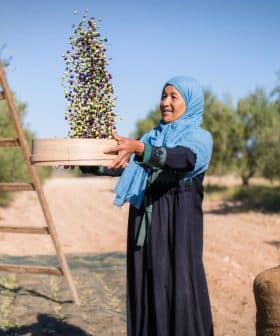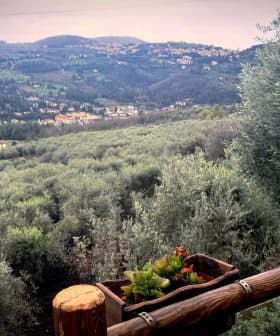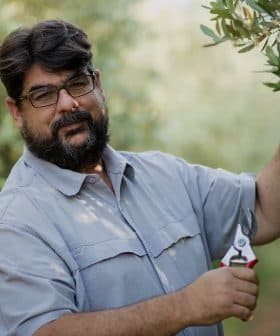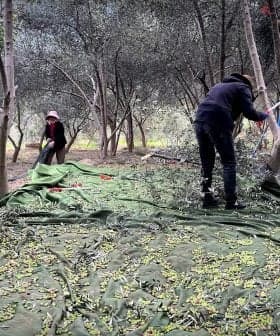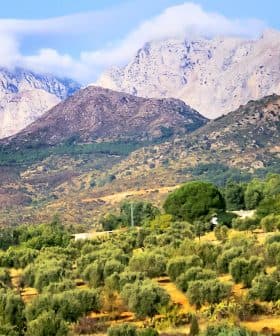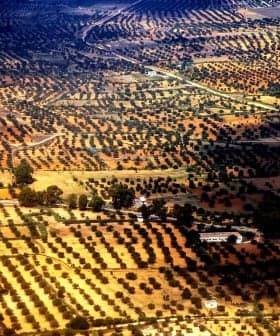Tunisia Predicts a Bumper Olive Harvest
A strong season would be a ray of light for the North African country, which has been thrown into a heightened state of political turmoil by the recent death of president Beji Caid Essebsi.
 Olive trees are being cultivated in Tunisia to help support their growing production trend..
Olive trees are being cultivated in Tunisia to help support their growing production trend..The Tunisian Ministry of Agriculture predicts that olive oil production will reach 350,000 tons this season, potentially making Tunisia the world’s second-largest oil producer after Spain. Chokri Bayoudh, CEO of Tunisia’s National Olive Oil Board, announced at a press briefing that the upcoming olive season seems promising, with efforts being made to improve quality control, regulate the market, and support producers and exporters.
The Tunisian Ministry of Agriculture has predicted that olive oil production will reach 350,000 tons this season. If their forecast proves to be correct, Tunisia could find itself for the second time the world’s second largest oil producer after Spain.
The olive season 2019/20, which will start in November, seems to be promising.
At a press briefing hosted by the Ministry of Agriculture, Water Resources and Fisheries last Friday, Chokri Bayoudh, CEO of the National Olive Oil Board (ONH), said, “the olive season 2019/20, which will start in November, seems to be promising.” He also hinted that based on preliminary indicators the olive harvest could exceed the country’s annual average.
Bayoudh announced that Tunisia’s olive oil production had reached 140,000 tons during the 2018/2019 season, with exports accounting for 117,000 tons and generating revenue of around 1.58 billion dinars ($550 million).
See Also:The Best Olive Oils from TunisiaHe also spoke of the preventative measures taken by the ONH against olive pests in preparation for the season, which included the treatment of two million saplings. He added that a forthcoming ONH meeting would concentrate on the necessary steps for a successful harvest and focus on ways to improve the quality control of olive oil, further regulate the market and ease access to funds for producers and exporters.
Bayoudh acknowledged efforts made by the government to support Tunisia’s olive oil industry. These included the planting of millions of olive trees in a drive to maintain Tunisia’s ranking as one of the world’s leading oil producing countries.
Lack of manpower for olive harvesting during Tunisia’s relatively short (November to March) season was cited by Bayoudh as one of the country’s major challenges.
A bumper olive harvest would be a ray of light for the North African country, which was thrown into a heightened state of political turmoil by the recent death of its 92-year-old president Beji Caid Essebsi, who was the country’s first democratically elected president.
Essebi hosted the ‘Tunisia 2020’ conference on his 90th birthday in an attempt to claw back international investment, which plummeted when foreign companies left Tunisia in droves as a result of the frequent protests and sit-ins following the 2011 Jasmine revolution.
Tunisia 2020 focused on raising funds for two major olive oil projects with investment sought for the planting of over 10,000 hectares (24,710 acres) of olive trees and the construction of modern processing and packaging units, which would create much-needed jobs in some of the country’s most deprived regions.
In 2017/18, Tunisia produced 280,000 tons of olive oil, an increase of 180 percent on the previous year’s dismal output, which had fallen by 55 percent to a mere 180,000 tons, with exports totaling just 70,000 tons.
Back in 2014, Tunisia was for the first time ever ranked as the world’s second-largest olive oil-producing country after yielding an abundant 340,000 tons, which marked a 485 percent rise against the previous year’s output.



